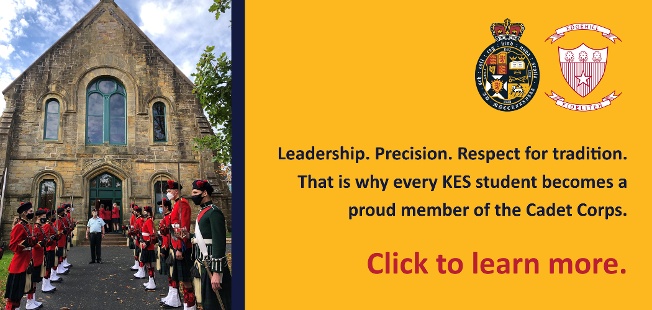News
Greater love
“You will love again the stranger who was your self” (Love After Love). The Caribbean writer Derek Walcott’s words help to bring together the interplay of love and law which has been a large part of the ethical reflections in chapel over the last month or so. We have had the reading of the Ten Commandments, of Christ’s command to love your enemies, of the Leviticus command to love your neighbour as yourself, and now as belonging to the vision of the Communion of Saints, the Beatitudes of Christ.
November is the grey month of our remembering: the remembering of the unity of our humanity as a community of love - such is the meaning of All Saints, the remembering of our common mortality - such is the meaning of the Solemnity of All Souls. This week brings us to Remembrance Day, the sad remembering of the horrific loss of life in the conflicts of the twentieth and twenty-first centuries. “I had not thought death had undone so many”, T.S. Eliot observes in The Burial of the Dead, the first part of “The Waste Land”, written exactly one hundred years ago. It is an allusion to Dante’s comment about the souls in the Vestibule of Hell in the Inferno of The Divine Comedy, imaged as chasing after this and that banner of ideological fads and fancies, souls worthy of neither heaven nor hell. If you don’t stand for something, you fall for everything, it seems.
Remembrance Day challenges us about our histories and about our life in community. In doing so it challenges us about ourselves and our assumptions about ourselves. The School on Remembrance Day marches as the Corps, meaning body, down to the cenotaph in Windsor and back again to the School’s cenotaph. A cenotaph is an empty tomb symbolic of the many, many young soldiers who never came back from campaigns in distant lands and places. Our students and faculty sit in chapel in the very pews where those from King’s College and King’s Collegiate School once sat before they went off to war. We remember them by name even though they are in some sense complete strangers to us. But in another way they are part of us, and we are part of them in the life and community of the School.
Our remembering is and should be a solemn and sober affair. It is not a celebration but a serious reminder of the ambiguities and complexities of life and about facing the past in all of its grandeur and misery, both the good and the evil which implicates us all. The blanket condemnation of everything before yesterday is the conceit of the naive and the self-righteous. How will those after us look upon us, after all? Our history is part of the life of our institutions and of ourselves. One of the great challenges of education is to help students to have a thoughtful relation to the past; for instance, to make sense of the senselessness of the great wars. It is easy to judge but much harder to understand.
“Greater love hath no man than this, that a man lay down his life for his friends.” Jesus’s words adorn a thousand cenotaphs. They remind us about sacrifice, about the commitment to principles and ideas however incompletely grasped and understood. They fought and died for ideas that they thought were worth dying for because they are worth living for. Their individual stories encompass a great range of emotions and reasons; all of them human. “Will they ever forgive us for what we have done?”, a character in Timothy Findley’s great classic, The Wars, asks another, speaking about the carnage of the First World War. “I doubt it,” is the reply, “I only hope they will remember we were human.”
We confront the limitations of our humanity, its sins and follies as well as its dignity and glory. How? This is where the Beatitudes, the Blessednesses of Christ’s Sermon on the Mount come into play along with The Fire Sermon of the Buddha and the Bhagavad Gita of the Hindu tradition. They remind us, each in their way, that we are inescapably part of something greater than ourselves. In the Christian understanding that has to do with the love of God and the love of neighbour realized in the figure of Jesus Christ.
The names of the dead are read out, recalling at once ‘The Book of the Dead’ in The Epic of Gilgamesh and ‘The Book of Life’ in Revelation. The names are the names of strangers, yet they are the names of those who belong to who we are as a School. We are part of them, part of this history which can neither be ignored nor negated. In remembering, we learn that we are not isolated individuals but members one of another without which we cannot be ourselves. We may think of them as strangers, but we are equally strangers to ourselves. The great ethical readings of the past month help us to understand better our humanity and thus ourselves. That is why Derek Walcott’s words have a certain resonance and poignancy. “You will love again the stranger who was your self.”
This Remembrance Day marks the last occasion that the Commanding Officer of the 254 King’s-Edgehill Corps, Major Keith Hynes, will be in command. We thank him for his great devotion and service to the Corps and the School over the last number of years and wish him all the best in the future.
This Remembrance Day marks the last occasion that the Commanding Officer of the 254 King’s-Edgehill Corps, Major Keith Hynes, will be in command. We thank him for his great devotion and service to the Corps and the School over the last number of years and wish him all the best in the future.
(Rev’d) David Curry
Chaplain, Head of English & ToK Teacher
Chair of the Department of Religion and Philosophy










